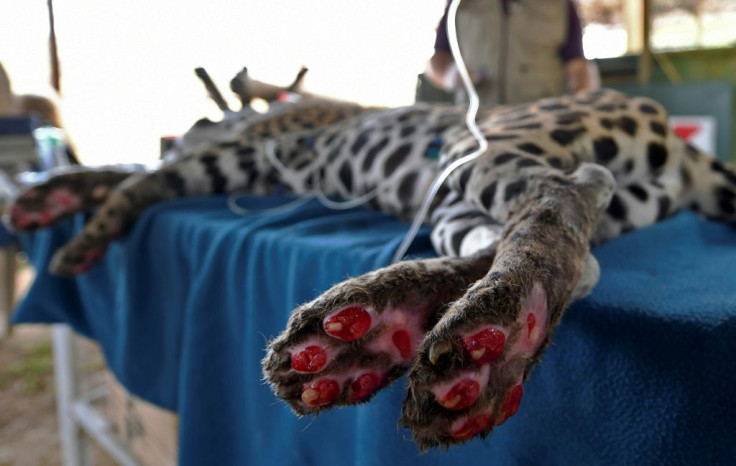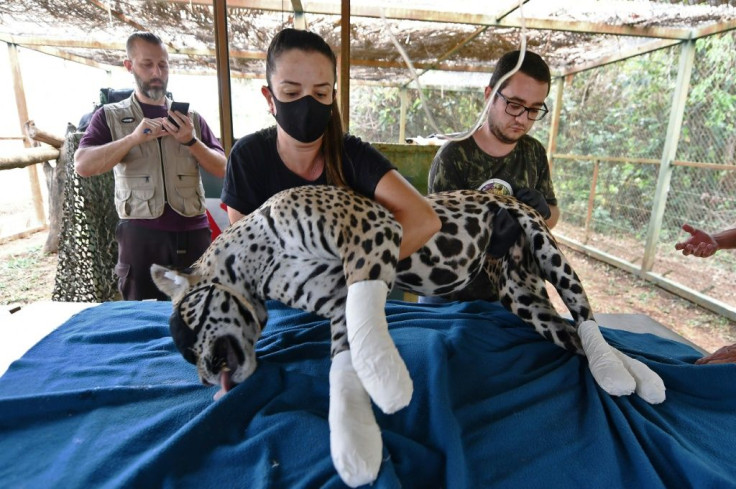Amanaci, The Jaguar That Symbolizes Environmental Destruction In Brazil Wetlands
Amanaci used to roam freely around Brazil's Pantanal region until an outbreak of fires in this paradise of biodiversity left the jaguar with scorched paws.
She was found two months ago sheltering in a chicken coop in Pocone in the central-western state of Mato Grosso, trying to flee the fires.
Since then Amanaci has become a symbol of the destruction of the planet's largest tropical wetland caused by fires.
Suffering from third degree burns to her paws, she is now being treated with stem cells at the Nex Institute, an animal preservation NGO, some 1,000 kilometers from her natural habitat.

"Amanaci's case really touched us. The injuries are horrible, she was left with exposed bones," Cristina Gianni, who founded the Nex Institute, told AFP.
On Sunday, the institute's vets took the sedated jaguar out of her cage and put her on a stretcher. They placed a mask over her eyes and removed her bandages to clean and treat her injuries, in which her flesh remains exposed.
"We started applying stem cells to stimulate the growth of tissue, cells and skin to accelerate the scarring," said vet Thiago Luczinski.
"Since then she's been responding really well to treatment, she's eating well, putting on weight and is quite active."

Despite her improvement, it's unlikely that Amanaci -- whose name means "Rain Goddess" in the Tupi-Guarani language -- will return to Pantanal as the fires burnt the tendons that allow her to extend her claws.
"She'd be highly affected in liberty because she won't be able to climb in the right way, she won't be able to hunt, pin down prey, she won't be able to extend her claws," said Luczinski, who said she would likely have to remain in captivity.
The Nex Institute is currently home to 23 rescued big cats.
Amongst them is Ousado, another jaguar that arrived from the Pantanal a month ago with second degree burns on its paws.
Having been treated with ozone therapy, Ousado could soon be released.
During 2020, fires have devoured 23 percent of the Brazilian part of the Pantanal, which also extends into Paraguay and Bolivia.
Images of landscapes reduced to ashes and strewn with carbonized animal carcasses shocked the world and provoked a hail of criticism against the government of Brazil President Jair Bolsonaro.
Environmental activists and experts have accused Bolsonaro of encouraging deforestation and an increase in forest fires due to his rhetoric in favor of extraction activities in protected areas.
© Copyright AFP 2024. All rights reserved.





















